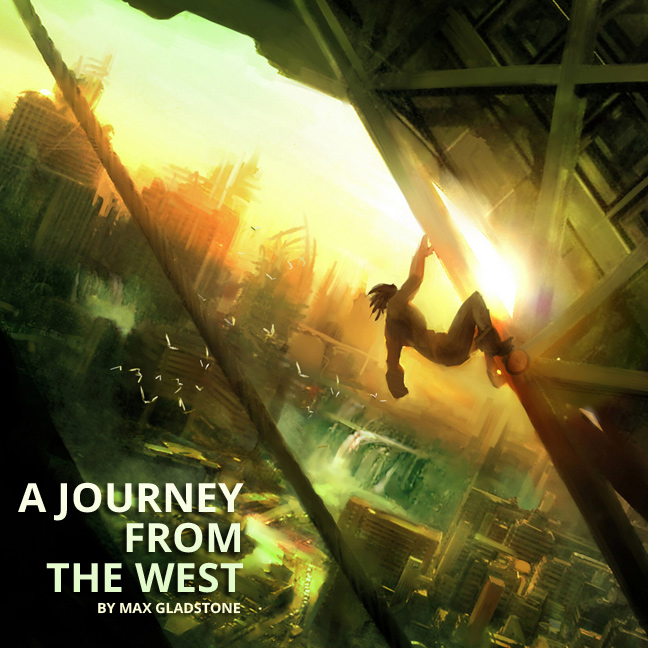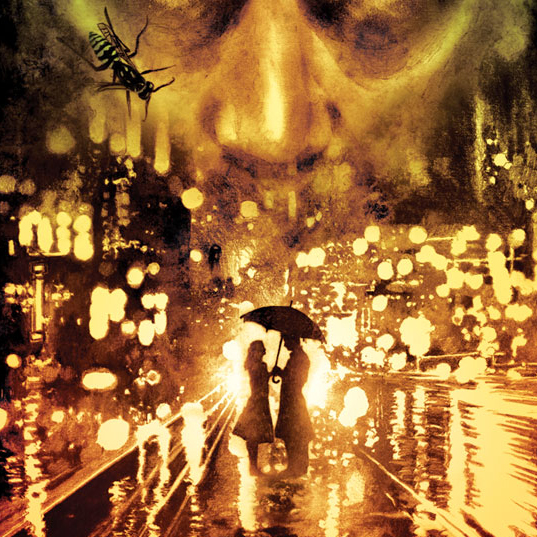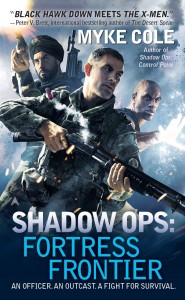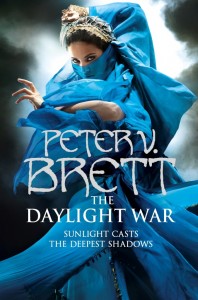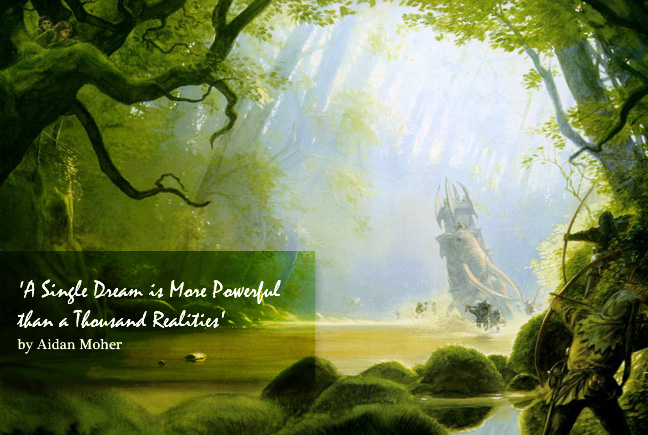
Art by John Howe
One evening, I had the chance to sit down with Steven Erikson and several other people over a glass of wine and dinner. It was a wonderful evening, full of laughs, camaraderie and discussion. Despite what you might think, me being a book blogger and Steve being a popular author, only a small portion of the evening was spent discussing fiction, books or writing. However, one short conversation, not with Mr. Erikson but with one of his friends, led me to think a lot about why I read, and when I read.
The conversation began with a question, “Do you read before bed?”
Some of us answered no, others, including myself, said, “Yes, I can’t fall asleep otherwise.” Those who answered “no,” had some interesting reasons, though they escape me now, but one of the other diners, a woman whose name I’m sorry to say I can’t remember, began talking about why she reads before bed. She made an observation that has stuck with me since. You see, she reads before bed because it allows her to put aside the events of her day, the events that might be coming the next day, and immerse herself in the emotions, problems and triumphs of the people living in the fiction she holds in her hands. Instead of falling asleep thinking about what needs doing tomorrow, or how her exam went poorly, she falls asleep wrapped in thoughts of these characters, wandering through these other landscapes. Read More »
